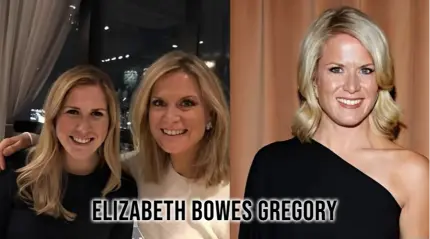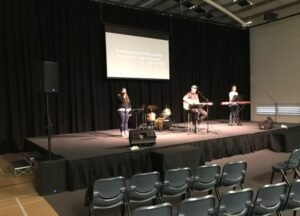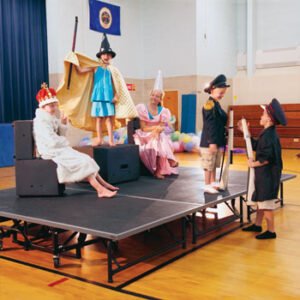5 Influential Women in Early American History You Should Know

Influential women in early American history helped shape the country long before they earned formal recognition. Early America was built on more than war and government. It was held together by the words, choices, and labor of women whose names don’t always appear in textbooks. These five women made real impact. Their lives changed how we think about religion, freedom, politics, literature, and military service.
Elizabeth Bowes Gregory
Elizabeth Bowes Gregory married into the Gregory family. They were landowners, political players, and early influencers in colonial Virginia. Her name doesn’t appear in speeches or pamphlets. But estate records, wills, and letters show her fingerprints on daily operations.
What she did:
- Managed estate accounts
- Directed household labor
- Maintained the family’s income while men were at court or in political meetings
She wasn’t unique in these duties. But her position and skill preserved generational wealth. While her husband served in Virginia’s House of Burgesses, she made sure the plantation stayed profitable.
Why she matters:
She represents the unseen labor of colonial women.
Key fact:
Her descendants went on to serve in both colonial and post-independence political offices. Her work kept the family legacy intact.
More detail:
Research suggests she handled correspondence with merchants and oversaw tobacco production schedules—critical for trade and profit.
Want more details? Check this resource on Elizabeth Bowes Gregory.
2. Anne Hutchinson
Anne Hutchinson moved from England to Massachusetts in 1634. She didn’t accept Puritan leadership blindly. She held private meetings in her home. Discussed sermons. Questioned doctrine.
That was enough to get her charged with heresy.
Why she was dangerous (to the system):
- Taught that individual faith mattered more than church structure
- Criticized clergy publicly
- Attracted followers, especially women
In 1638, she stood trial. Not for crime, but for speaking out. Her courtroom exchanges showed intellect and confidence. She was banished from Massachusetts and moved to Rhode Island.
Why she matters:
She fought for religious freedom early on.
Key fact:
Her trial is still referenced in debates about free speech, religious liberty, and gender in leadership.
Data point:
She led one of the first organized dissent movements in New England, drawing over 60 followers to her home meetings.
3. Mercy Otis Warren
Mercy Otis Warren used words to fight tyranny. She was born into a wealthy Massachusetts family in 1728. Her brother, James Otis Jr., was an early anti-British activist. She shared his fire.
What she did:
- Wrote plays mocking British officials
- Published political essays under pseudonyms
- Used satire to expose abuses of power
She was close with many key figures of the time. John Adams. Samuel Adams. Thomas Jefferson. Her letters show she advised them, argued with them, and shaped their thinking.
Why she matters: She used writing to influence politics.
Key fact:
In 1805, she published History of the Rise, Progress, and Termination of the American Revolution. It was one of the first histories of the war—and the first by a woman.
Added context:
Her work didn’t sit quietly. Some Federalists, including Adams, criticized her interpretations. But she stood by them.
4. Phillis Wheatley
Phillis Wheatley was kidnapped from West Africa and sold into slavery as a child. The Wheatley family of Boston bought her in 1761. They taught her to read and write. Within years, she was writing poetry in English and Latin.
Published work:
In 1773, her book Poems on Various Subjects, Religious and Moral was released. It made her the first African-American woman to publish a book of poetry.
She wrote about:
- Freedom
- Religion
- Race
- Identity
George Washington received a poem she wrote for him. He responded with gratitude and later invited her to visit.
Why she matters:
She proved intellect had no racial bounds.
Key fact:
Her work was used by abolitionists to argue against slavery.
Important stat:
At a time when fewer than 10% of enslaved people were literate, Wheatley had mastered multiple languages and published internationally.
5. Deborah Sampson
Deborah Sampson was born in Massachusetts in 1760. Her father abandoned the family. She worked as a servant and teacher before deciding to enlist in the army—under a male name.
She enlisted as: Robert Shurtliff.
She joined the 4th Massachusetts Regiment in 1782. Served for 17 months. Was wounded. Treated herself to avoid detection.
Eventually, she was discovered and honorably discharged.
Why she matters:
She challenged gender roles in the military.
Key fact:
In 1805, she became one of the first women to receive a military pension from the U.S. government.
Extra insight:
She later toured the country giving lectures dressed in her uniform—publicly retelling her story at a time when few women spoke on stage.
Shared Themes Across Their Stories
Influential women in early American history shaped more than households—they shaped ideas, policy, and the long-term structure of American life. If history only records official titles, most women disappear. These stories fill the gaps.
You don’t have to be a general, president, or lawmaker to shape a country. Sometimes you just need access to a room, a pen, or an idea—and the will to act.
These women had different paths. But their actions shared themes:
- Agency in male-dominated spaces
- Resistance to norms
- Impact without holding office
They weren’t background characters. They shaped events. Even when denied titles or credit.
Use these names when:
- Teaching American history
- Researching early education, politics, or faith
- Exploring how women shaped national identity
Data you should know:
- Less than 5% of colonial historical records reference women directly. Most information comes from indirect sources: court records, letters, estate documents.
- Only two women—Mercy Otis Warren and Phillis Wheatley—were widely published before 1800.
Why Their Stories Matter Now
You don’t need to idolize the Founding Fathers to study American history. Understanding the full picture means knowing who else was there—doing work, taking risks, making change.
Textbooks still skip over these names. That’s a loss.
If you’re learning, teaching, or even curious—read more about:
- Property laws and women’s rights pre-1776
- Female voices in colonial newspapers
- Letters and diaries from the Revolutionary period
These stories are there. They just weren’t included in the original narrative.
Questions to Think About
- How many women from your local area were involved in early U.S. history?
- What systems kept their names out of the records?
- Are there descendants of these women who still shape your community today?
Where to Start Reading More
- The Women of the American Revolution by Elizabeth Ellet
- Founding Mothers by Cokie Roberts
- National Archives: Women’s History resources
- Massachusetts Historical Society collections
These women shaped history in ways textbooks often ignore. Their stories deserve attention. If we’re going to understand early America, we need the full story. Not half.
What You Can Do With This Information
- Share these stories in schools, museums, and community groups
- Look into local archives for women’s voices in your town
- Correct misinformation and omission in textbooks and lesson plans
These influential women in early American history made bold decisions with limited rights. Knowing their names changes how you see early America. Their stories aren’t side notes. They’re central to the full picture.





